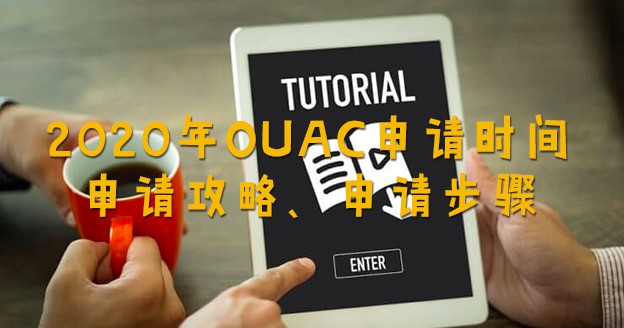With the growth of China's social economy, many parents with good economic conditions hope to send their children to high school in Canada. However, because they do not know much about studying abroad in Canadian high schools, they have difficulties making decisions. Here,UtoCanada has summarized a list of frequently asked questions aboutstudying in Canadian high schools.If you are interested in studying in Canada, let's take a look!
Why should I choose toStudy Abroad in Canada and what are the advantages?
1. The Canadian education system is a combination of the American and British education systems, but it leans more towards the American one. The teaching quality is topnotch and the academic qualifications obtained are recognized in all of North America and worldwide. Unlike Chinese exam-oriented education, Canadian high schools pay more attention to strengthening the students’ comprehensive qualities, such as in practical skills, as well as the ability to cooperate and coordinate with others. This kind of comprehensive development is very beneficial to the employment of the students after finishing school.
2. English is everywhere so it is a great chance to practice your proficiency and fluency in English. There are also many community and team activities that allow international students to get in touch with society as early as possible and improve their social abilities in different aspects.
3. As one of the largest immigrant countries in the world, students who graduate from college/university in Canada can get a work permit for up to 3 years and can apply for Canadian immigration.
4. The cost of studying in Canada is more reasonable than in other English-speaking countries. It only costs about 150,000 RMB per year.
5. Safety is also an important issue for parents to consider. Canada is the world's safest country with a mature democracy and a stable political system. Human rights are fully guaranteed and there is no racial discrimination.

How many different ways can high school students study in Canada?
Generally speaking, there are two ways to study in high school in Canada:
1. Go to Canada to study in high school and get a Canadian high school diploma. You will have a wider university selection.
2. After graduating from high school to go to university, you can choose to get in through direct admission, conditional admission, or a university "preparatory" program.
Why send children to high school in Canada?
Having your children go to high school in Canada allows for them to adapt to the foreign education system and the lifestyle as early as possible, especially when they need to learn English.
Because of their young age, students can break through language barriers in a shorter period of time, learning languages more quickly, with better chances of acquiring a near-native accent. What's more important is that after graduation, students can, like local students, use their high school credits to freely choose a university in Canada. On the other hand, those who come to study later, like Chinese high school seniors with no language credits, will only be able to choose from the very few universities that offer conditional offers to students without language proficiency results. It is a good time for students in the 9th, 10th or 11th grade to go to high school in Canada because the high school diploma is a stepping stone to the top universities in the United States and Canada.
Should I study in a large or small city in Canada?
At present, Chinese international students who choose to study in Canada often choose the three major cities in Canada – Toronto, Vancouver, and Montreal; just like how Chinese families move to Beijing or Shanghai prior to the Chinese college entrance examination so that their children can have better chances at getting into the leading universities in those big cities.
As a result, Chinese students have gathered in these big cities in Canada. Of course, these three cities have very good comprehensive universities, Toronto Universities、McGill University、University of British Columbia、, Simon Fraser University, etc, but the grade cut-offs for admission to these universities are relatively high. In fact, there are very good universities in every province in Canada, so students and parents can also consider other cities according to their choice of majors or other circumstances.
Is there a distinction between public and private schools in Canada just like in China?
Yes. Similar to schools in China, there is a division between Canadian public and private high schools.
Public and private high schools are directly under the jurisdiction of the Ministry of Education of Canada. The compulsory curriculum requirements and graduation standards are exactly the same between the two, so there is essentially no difference.Private high schools in Canada are more stringent in management, with a wide range of minor courses and extra-curricular activities, but the tuition fees are higher than in public high schools.
Public high schools in Canada are affiliated with the ministries of education in each province. Each city or region will have a school board or school district to manage public high schools in its area. The number of public high schools under the jurisdiction of each school board or school district ranges from a few to a few hundred. For example,the Toronto District School Board (TDSB)has hundreds of schools
The teaching quality of private schools is monitored by the provincial ministries of education, and private schools have greater autonomy to operate. Therefore, the teaching quality and evaluation standards of private schools are usually higher than those of public schools.
,In Canada,what are the advantages and disadvantages of public and private high schools in Canada?呢?
Advantages of Public High Schools in Canada
There are three advantages to attending a public high school:
1. Canadian local students attend high school for free. That is why 90% of the population in public high schools are locals. Because of this, international students will immerse themselves into this English-speaking environment so they can improve their English skills as quickly as possible.
2. The curriculum of public high schools have a wide course variety, and there are many extracurricular activities.
3. Because public education is funded by the government, there are investment contributions to the construction of education infrastructure, including libraries, lounges, laboratories, meeting rooms, etc., all prepared for teachers and students.
Disadvantages of Canadian Public High Schools
There are also some inflexible regulations in public high schools. For example, schools that open in September each year may end in March. Because of the high enrollment, international students have limited choices in schools. Therefore, it is recommended that parents and children start their school selection process in advance. Also, public high schools do not provide on-campus accommodation, so students can only find local host families. For students who are new to Canada, they may find it difficult adapting to the new lifestyle.
Advantages of Private High Schools in Canada
Basically, there are two main advantages to attending private high schools:
1. Private high school students are mainly from non-English speaking countries.Because the main purpose is to study in Canada's top universities after graduationthe rate of admission to universities is very high. With small class sizes, teachers are able to look after every student. For example,Yorkland High School has a small-class environment, with no more than 10 students in each class, so that all students can be better engaged and are able to learn better.
2. They have several start dates each year. If you miss one semester, you can postpone your studies to the next semester, which is only a few months apart. Private high schools generally have at least four or five start dates per year.
Disadvantages of Private High Schools in Canada
The disadvantage of attending a private high school is that the language environment for learning English is not as good.
Because most students do not speak English as their first language, they tend to communicate in their mother tongue outside the classroom. In order to control this phenomenon, schools are now starting to mix students from different countries together into the a classroom setting. The goal is to prevent students from communicating in their own language.

Because most students do not speak English as their first language, they tend to communicate in their mother tongue outside the classroom. In order to control this phenomenon, schools are now starting to mix students from different countries together into the a classroom setting. The goal is to prevent students from communicating in their own language.
The Canadian education system is similar to China’s. Generally speaking, high school is three years, and in some provinces have high school is 4 years (such as in Ontario). They are the 10th grade, 11th grade and 12th grade. Students can graduate after completing 30 credits. Of these, 18 are compulsory credits and 12 are elective credits. A credit is obtained after the completion of each course. In British Columbia, students are required to have 80 credits to graduate, ranging from 2.5 to 3.0 credits per subject.
The 18 compulsory-credit courses include:
English, French as a Second Language, Mathematics, Science (Physics, Chemistry, Biology, Computer Technology, etc.), Canadian History, Canadian Geography, Art, Health and Physical Education, Civics, Vocational Training, a third language (Chinese can be a third language worth 1 credit), Social Sciences and Humanities, Canadian World Studies, Business Studies, etc.
The twelve elective credits are for students to go to university and college, chosen in accordance to their future career path. Students can choose from a range of courses offered by the school based on their personal interests. In grades 10-12, students can obtain four elective credits automatically without taking courses if they prove that they have specialized knowledge and skills, but each subject area cannot exceed two credits.
Here are the subjects for elective credits:
Accounting, Biology, Business, Chemistry, Classical Studies, Computers and Technology, Drama, Economics, Electrical Technology, English, English as a Second Language Studies, Geography, History, International Language Studies, Law, Marketing Management, Music, Health and Physical Education, Visual Arts and many more.
In addition, high school graduates in Ontario must complete 40 hours of volunteer work, and in some provinces, they may also be required to pass an English literacy test before they graduate.
How does a student get into Canadian high school? Is there a national college entrance examination or graduation exam?
There is no national college entrance examination in Canada. Canadian secondary school students can apply for university without having to take a special admissions test.
Canadian universities have their own student selection systems. Because the Canadian federal government does not have a specialized education management institution, the management of education is the responsibility of the provincial and local governments. This has led to differences in the Canadian primary and secondary education system. However, every Canadian university has different admission requirements for students.
British Columbia high schools have a provincial test before graduation, which is equivalent to China's college entrance examination. On the test, students will be assessed on 12th grade English literacy, and other areas will be assessed from the student’s usual grades and teacher recommendation letters.
 There are no provincial examinations for high school graduation in the Toronto area. When applying for university, you will only need to have your high school grades, 40 hours of volunteer hours, and teacher recommendation letters. Chinese students are generally better at science and engineering than Canadian students. As long as they learn English well, their study progression should be fine.
How do Chinese high schools correlate with Canadian high schools?
Generally speaking, Chinese middle school graduates go to Canada and enter grade 10 directly. If they have finished their first year of high school in China, they go into grade 11 in Canada. If they have finished their second year of high school in China, they go into grade 12 in Canada. If they have finished their third year of high school in China, they also go into grade 12 in Canada.
Generally speaking, Chinese middle school graduates go to Canada and enter grade 10 directly. If they have finished their first year of high school in China, they go into grade 11 in Canada. If they have finished their second year of high school in China, they go into grade 12 in Canada. If they have finished their third year of high school in China, they also go into grade 12 in Canada.
 The education in Canada and China is different as Canadians use a credit system. Generally, Chinese high school students who finish their second year in China can enter the 12th grade in Canada. Canadian schools recognize 22 credits. These students will enter the 12th grade to study and obtain the remaining eight credits. Students who have graduated high school in China also need to start at grade 12 in Canada because Canadian schools recognize 24 credits and students should continue to complete the remaining six credits.
What do I need to apply for high school?
 When applying for a public high school, you need to provide a transcript from the last 2 to 3 years of your studies, and you must list all the subjects you have studied (including politics, physical education, etc.) You must provide both Chinese and English versions of the transcript stamped by the school. On the application, you can fill in your three of your school choices when you apply. However, if there are no places in these schools, the Board of Education will designate another school for you. Generally, there is no need to attend an interview. Children under 18 years of age need to be guardians of Canadian citizens or permanent residents.
 The admission requirements of each private high school are different. Most of these schools need to see your school results from the past 2 to 3 years, and a list of all your subjects. Some private high schools may also require an interview.
Is there a ranking for private / public high schools in Canada?
 Canadian public high school rankings shown on Report Cards issued by the Fraser Institute assessment system, such as for British Columbia and Ontario secondary schools. The Report Card provides a valuable tool for making a decision, but the choice of a school should not be made solely on the basis of any one source of information.
 Unlike public high school rankings, there are actually no other authoritative organizations on the market like the Fraser Institute to develop a ranking system for private high schools.If you look online and find the rankings of Canada's top private high schools, the fact is, these rankings are likely created by study-abroad agencies which have developed their own standards.
 Whether public or private, each school has its own characteristics. For parents, finding the school that is "suitable" for their child is the most important.
How to Plan Your Accommodation When Going to Canada for High School
Canadian Public High School
 Most public high schools in Canada do not provide on-campus housing, so international students are required to live in a local homestay. International students under the age of 18 need to live with a guardian in order to study in Canada. The guardian must be a Canadian citizen and live near the school. Parents of students must provide a notarized guardian power of attorney. Guardians must also be of English-speaking families so as to create a good language learning environment for students.
Private high schools in Canada
 Outstanding private high schools are mostly boarding schools, where students live in school dormitories. They are relatively safe, and the school's unified management of boarding and lodging can ease the students’ difficulties of coping with life. Especially for students when they first arrive in Canada, it will be much easier for them to focus on learning and adapt to Canadian teaching methods as soon as possible.
Can parents feel at ease letting their children study abroad alone?How are homestay families?怎么样?
 Many parents feel nervous when their children are not around. They tend to worry about whether their children are getting fed and whether they are adapting to the strange, new life. Here are some details of homestay families: Many Canadian families welcome international students.
 Choosing to stay with a homestay family is the most suitable for students who have just arrived in Canada, because it is the best solution to finding room and board. Most homestay families can provide furnished private rooms and meals, as well as most daily necessities. When living with a homestay family, the child basically does not need to buy any food or daily necessities by themselves. That way, the student saves a lot of energy, money and time, and so they can concentrate on their studies.
 At the same time, most homestay families welcome and encourage international students to participate in family activities. In the child’s interactions with them, it is an effective way for you to improve English or French, understand Canadian culture and life, and meet new friends. Foreign Student Services say that homestays provide a stable and safe environment for students studying in Canada. They also know the local areas very well, which is very helpful for international students to quickly adapt to Canada. The headquarter of Foreign Student Services have also found that students are satisfied with their experience with homestay families and parents feel assured. The average cost of homestay is between $ 800 and $ 1200 per month.

Is there an age limit to apply for a high school in Canada?
 Because the education systems in Canadian provinces are different, the age limit differs in each province. Students can choose which province to study in based on their own circumstances.
Do I need a language score to apply for a Canadian high school?
 The language scores mentioned here are not the English grades that the students get from school in their home country, but the international English standard test scores, such as the common IELTS, TOEFL and others. According to the current high school entrance requirements, only the results from the past 2-3 years of school, proof of enrollment and some other information are required. Although students are not required to provide TOEFL or IELTS results, it does not mean that students can belittle English learning.
 Students who plan to study abroad should try to obtain a good English foundation before going to Canada. After going abroad, and starting life in a completely unfamiliar language environment, everything needs to be communicated in English. If you have a weak foundation of English, it will difficult to adapt especially in the beginning. At the same time, when students report to the school, the school will test the student’s English and math abilities in order to comprehensively evaluate and guide them to the curriculum. Therefore, English is equally important for high school international students. Laying a good language foundation will enable students to quickly adapt to their new life after going abroad.
I don’t like my high school in Canada. Can I transfer to another school? What are the conditions and requirements?
 Canadian high schools allow transfers based on individual requirements. As long as the applicant meets the academic and English proficiency requirements of the school they are applying to, there are no restrictions on transfers. But before transferring, students need to pay attention to some issues.
 You need to have received approval from the new school before the transfer, and a tuition deposit must be paid. In general, you do not need to renew your study permit unless you are transferring from high school to college or university, or from college/ university to high school. However, if the student completes the school withdrawal procedure, and there is no other school available, or the student cannot be admitted in time because of issues with their study permit, it is becomes a serious matter. Each school has its own refund policy. Therefore, students must communicate with the school before the transfer. If the transfer is made in advance, find out how much tuition can be refunded, because the one-year tuition paid to the school before the start of the school is not refundable. All refunds must be communicated directly to the school by the student in person.
Students need to prepare an application form, application fee (regardless of the result of the application, this fee is generally not refunded to the applicant. The specific fee varies from school to school, ranging from tens to hundreds of dollars), report card and other application materials.
What about higher education in Canada?如何?
 Canadian national education is universally developed. According to the agreement between the Chinese and Canadian governments, the State Education Commission of China recognizes the schools of Canadian government politicians and their academic qualifications. Most provinces in Canada implement 12-year universal compulsory education, and they can go directly to university after graduating from high school. At present, there are more than 90 universities in Canada, and their academic qualifications are generally recognized in all countries. Each academic year at each university is divided into two semesters. The fall semester is from September to December, and the winter semester is from January to April. Some courses are also available for students in summer. The undergraduate degree is generally four years, and the credit system is implemented in all subjects. Students who have taken more courses can graduate in advance.

Is Canadian education recognized by other countries?
Degrees awarded by Canadian universities are recognized worldwide.
I am applying to study in Canada after high school.Should I choose a college or university?
 You should choose a school that is suitable for your financial situation, personality and characteristics, study goals, and future plans. Generally speaking, for students with good high grades in school, wanting to study abroad for academic goals, with a good economic foundation are advised to apply for university. Those with a clear employment and immigration intentions, with average financial conditions are advised to choose colleges, because college education focuses more on teaching students practical skills in the curriculum, and most majors have co-op opportunities, which can increase the students’ chances of employment after graduation.














